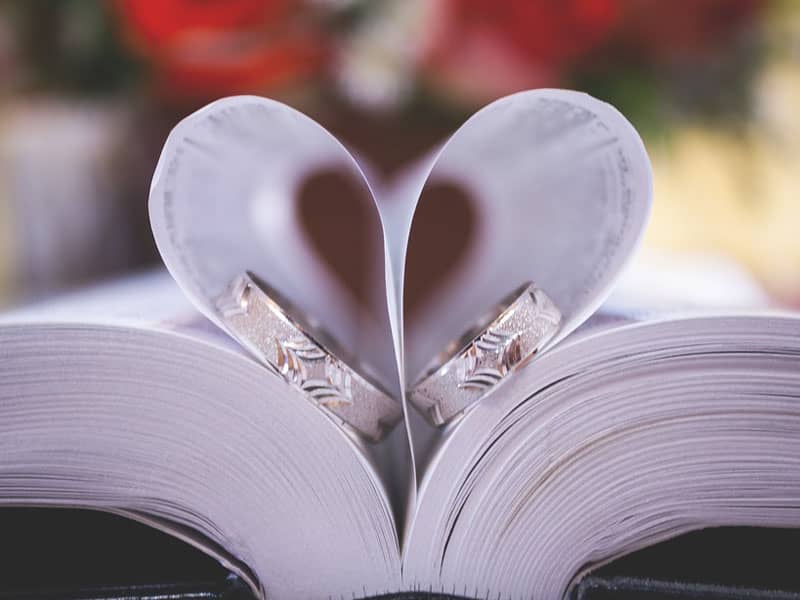 More than ever, people are crossing over lines of race, religion and culture when they choose to marry. Asian Indians are coming to the States in ever-increasing numbers, and the largely Hindu group is being faced with a life-altering and often painful decision. Should they follow tradition and marry someone from home, perhaps arranged by their families? Or do they give themselves the freedom to fall in love and marry an America of Indian descent, or even a non-Indian?
More than ever, people are crossing over lines of race, religion and culture when they choose to marry. Asian Indians are coming to the States in ever-increasing numbers, and the largely Hindu group is being faced with a life-altering and often painful decision. Should they follow tradition and marry someone from home, perhaps arranged by their families? Or do they give themselves the freedom to fall in love and marry an America of Indian descent, or even a non-Indian? For many Indian parents, the idea of a son or daughter marrying outside of his or her social class or geographic region is almost unthinkable, and the discovery that their child has chosen a partner from another country can be a great shock. As one young Indian man puts it, "If I married a non-Hindu, I don't believe my parents would ever accept the marriage. They would say we are just too different, and that it wouldn't work."
 For Americans, the initial immersion in the Indian culture can be a little awkward, but the spirituality and inclusiveness of Hinduism provides many westerners with a sense of self and a peacefulness that have previously eluded them. "People feel that Hinduism offers a chance to find spirituality without losing their individual preferences for worship," says Arizona native and Hindu convert, Darshani Sukumara. "In Hinduism there is room for both the atheist and the devoutly spiritual person."
For Americans, the initial immersion in the Indian culture can be a little awkward, but the spirituality and inclusiveness of Hinduism provides many westerners with a sense of self and a peacefulness that have previously eluded them. "People feel that Hinduism offers a chance to find spirituality without losing their individual preferences for worship," says Arizona native and Hindu convert, Darshani Sukumara. "In Hinduism there is room for both the atheist and the devoutly spiritual person."
 It is when the couple has decided to marry, and the time comes to plan a wedding, that both must carefully decide how to celebrate in a way that will represent who they are, but also create the conditions for both families to feel respected and included. This is no easy task. Couples either choose to have one wedding with elements from both traditions or to have two separate weddings. One of the fundamental differences between a Hindu and a traditional mainstream American wedding is that the bride in a Hindu ceremony must worry only about her choice of dress and ornaments, and the families take care of the rest. Planning of the wedding, including the vows, rituals, colors, food and music, are tied to tradition, and only vary depending on region and caste of the family.
It is when the couple has decided to marry, and the time comes to plan a wedding, that both must carefully decide how to celebrate in a way that will represent who they are, but also create the conditions for both families to feel respected and included. This is no easy task. Couples either choose to have one wedding with elements from both traditions or to have two separate weddings. One of the fundamental differences between a Hindu and a traditional mainstream American wedding is that the bride in a Hindu ceremony must worry only about her choice of dress and ornaments, and the families take care of the rest. Planning of the wedding, including the vows, rituals, colors, food and music, are tied to tradition, and only vary depending on region and caste of the family.
 Unlike the solemn, deliberate feeling of many traditional American ceremonies, Hindu weddings have a more spontaneous, celebratory mood. Many family and friends participate in the ceremony, loud music practically drowns out the proceedings, and everyone is dressed in the most colorful, ornate way possible. The bride and groom go into the ceremony, which can often last up to three days, with little knowledge of what to expect. The couple is led by their aunts and the priest through an elaborate series of mysterious rites and symbolic acts, the significance of which many Hindus have difficulty explaining. The ceremony is performed in Sanskrit, an Indian equivalent of Latin, which very few people today can understand.
Unlike the solemn, deliberate feeling of many traditional American ceremonies, Hindu weddings have a more spontaneous, celebratory mood. Many family and friends participate in the ceremony, loud music practically drowns out the proceedings, and everyone is dressed in the most colorful, ornate way possible. The bride and groom go into the ceremony, which can often last up to three days, with little knowledge of what to expect. The couple is led by their aunts and the priest through an elaborate series of mysterious rites and symbolic acts, the significance of which many Hindus have difficulty explaining. The ceremony is performed in Sanskrit, an Indian equivalent of Latin, which very few people today can understand.
The language and the ritual of the Indian marriage remind everyone involved that they are participating in a time-honored ceremony that has united Hindu couples for more than 2000 years. A couple's marriage is part of something larger than themselves, and their union doesn't depend on only their own strength, but is reinforced and nurtured by the strength of an ancient and sacred force.
Photo Credit:
Ken Graham Photography
http://www.kengraham.com

